What to Say After Someone Dies Islam

Inna Lillahi wa Inna Ilaihi Raji'oon . 'Indeed we belong to Allah, and indeed to Him we are returning'. [The Noble Qur'an, 2:156]
The last year has been one of tremendous trials and tribulations. Many of us have lost loved ones to COVID-19. We pray Allah (swt) grants them all the highest ranks of Jannah, may He illuminate their graves and grant beautiful patience 'Sabr Jameel' to their loved ones. Ameen!
Death is the only thing promised in life. We lose ourselves in this temporary world, forgetting that we shall soon return to our Creator, with the death of loved ones being a sign that indeed none of us are here forever. As Muslims, we know this. Nevertheless, when we lose someone close to us, it is a heartbreaking time - as we attach ourselves to all the memories we shared, facing the reality that we will never see them again in this world.
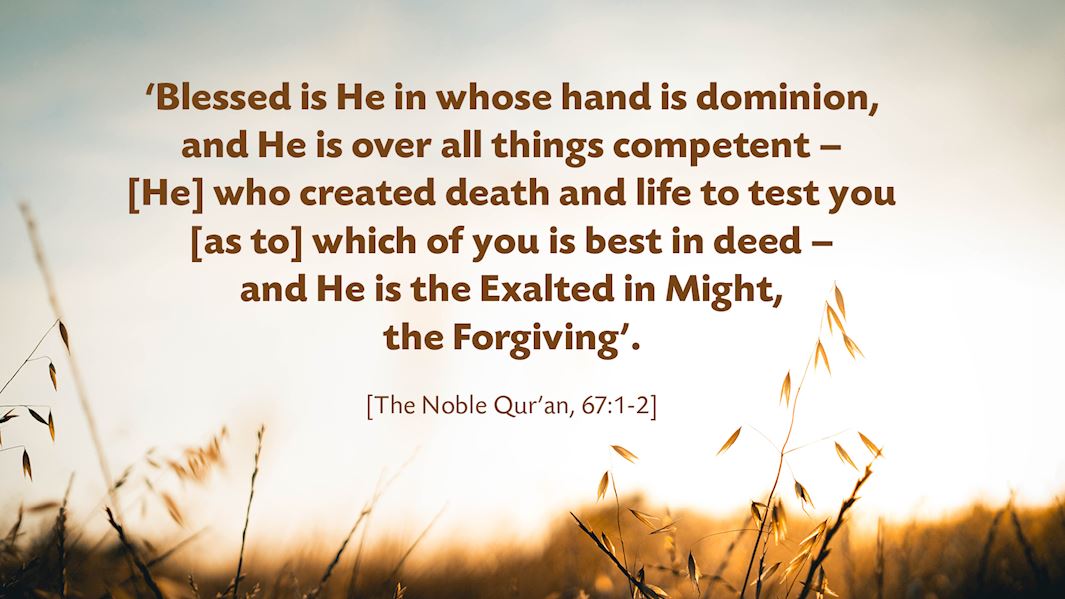
But our faith is a religion of hope. We believe that this Dunya is not the end, that there is indeed a reunion in the Hereafter. We pray Allah (swt) allows us to reunite with our loved ones in the Gardens of Paradise, embracing them, knowing there are no more goodbyes. Ameen! While you may dream of that reunion in Heaven, there are ways you can help yourself through the grief and benefit both yourself and your loved one in this world. So, trust in Allah (swt) and read on for more advice.
1. Make Du'a for Them
One of the greatest gifts we have as believers is the gift of du'a (supplication). Alhamdulillah, we have the opportunity to make du'a for our loved ones and benefit them in the grave, by seeking forgiveness for them. It is our continuous prayer, remembrance and du'a that will help them in the Barzakh, the interspace between this world and the next.
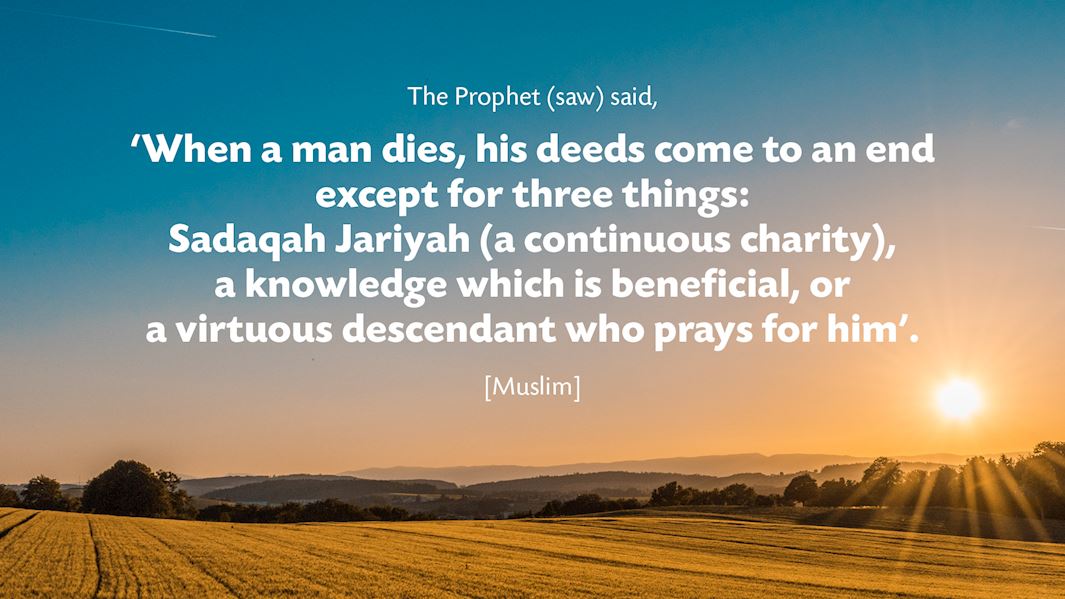
Just as we would want our loved ones to remember us after we pass, we should honour our deceased, as they are in need of our du'as. These don't necessarily have to be offered in a gathering or at the graveyard. They can be part of your daily routine. T he best du'a is that which is in accordance with the Sunnah of our beloved Prophet (saw) and the Qur'an. There are many verses in the Qur'an where prayers are made for those who have passed away:
'Our Lord, You have encompassed all things in mercy and knowledge, so forgive those who have repented and followed Your way and protect them from the punishment of Hellfire. Our Lord, and admit them to gardens of perpetual residence which You have promised them and whoever was righteous among their forefathers, their spouses and their offspring. Indeed, it is You who is the Exalted in Might, the Wise'. [The Noble Qur'an, 40:7-8]
2. Give Sadaqah Jariyah on their behalf:
Allah (swt) has also blessed us with the chance to give Sadaqah Jariyah on behalf of our loved ones. This is a continuous, ongoing charity, which will benefit them for years and years to come and comes directly from the Qur'an and Sunnah. Allah (swt) tells us in the Qur'an:
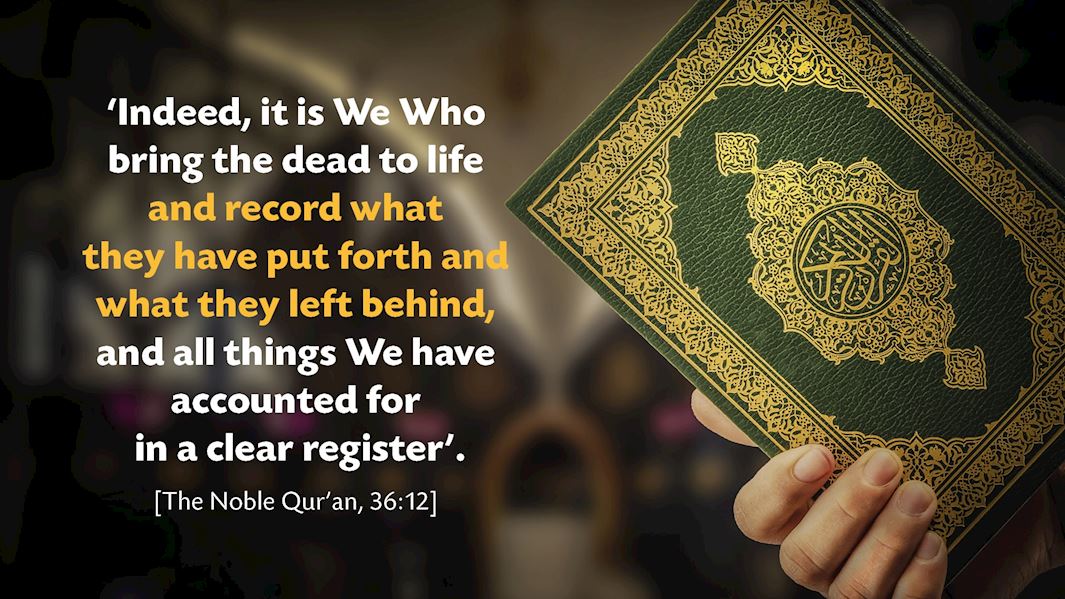
One of the major misconceptions about giving Sadaqah Jariyah is that our own reward will be decreased, and if we give it on behalf of both parents, that reward will be split into two.
However, the truth is, when a person makes a donation or executes a charitable act in the name of one or more deceased or living people (no maximum limit), it will benefit them all with full reward, without decreasing our own rewards!
On the authority of Sa'd bin 'Ubadah (ra) that he said, 'O Messenger of Allah! Umm (mother of) Sa'd has died, so which charity is best?' He [saw] replied, "Water (is best)." He said, 'So he [ra] dug a well and said, "This (well) is for Umm Sa'd"'. [Abu Dawud]
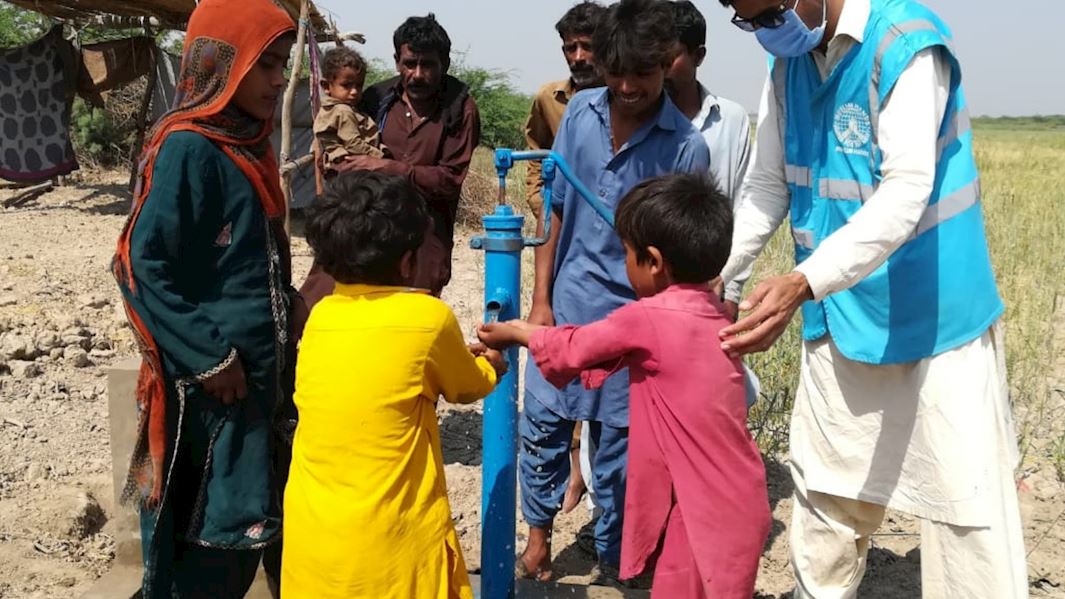
We also find from the Hadith, that our charity directly reaches our loved ones in the Barzakh, giving them joy:
The Prophet (saw) said, 'There is no household of whom one person dies and they give charity on his behalf after his death, but Jibreel (as) will present it to him on a platter of light. He will stand at the edge of the grave and say: 'O occupant of the deep grave, this is a gift given to you by your family, so accept it.' Then he will enter upon him, and he will be delighted thereafter and rejoice, and his neighbours (in the graveyard) who were not given anything will be sad'. [Tabarani]
Let us remember and honour our loved ones with Sadaqah Jariyah just as we would wish for our loved ones to honour us with beneficial, ongoing charity.
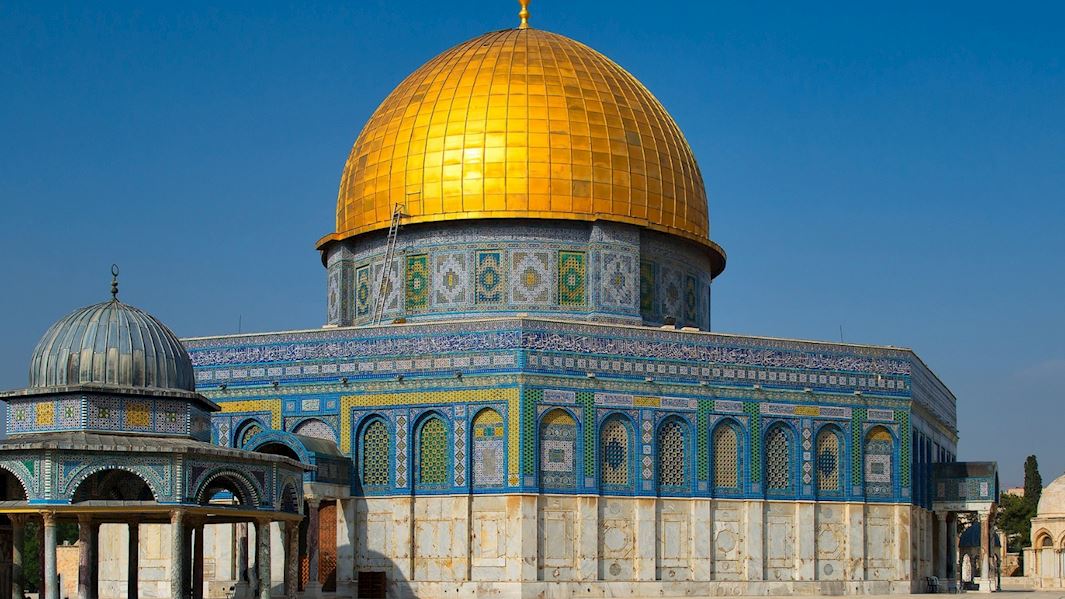
There are plenty of ways to give Sadaqah Jariyah, but some of our recommended projects include donating a water well, illuminating the Dome of the Rock and housing a Syrian family. We should make the effort to invest in our own Hereafter by planting the seeds of Sadaqah Jariyah in our lifetime so that they may continue to flower when we are beyond this world!
3. Practise Patience
If we've been taught anything over the last year, it is sabr. You need to give yourself time to heal and to process all of your emotions. Patience is often misunderstood as blocking out our feelings and not allowing ourselves to experience the grief which naturally follows loss. In truth, patience is channelling those emotions without letting them overcome you, keeping trust in Allah and His decree.
Allah reminds us of the virtue of patience during various times within the Qur'an:
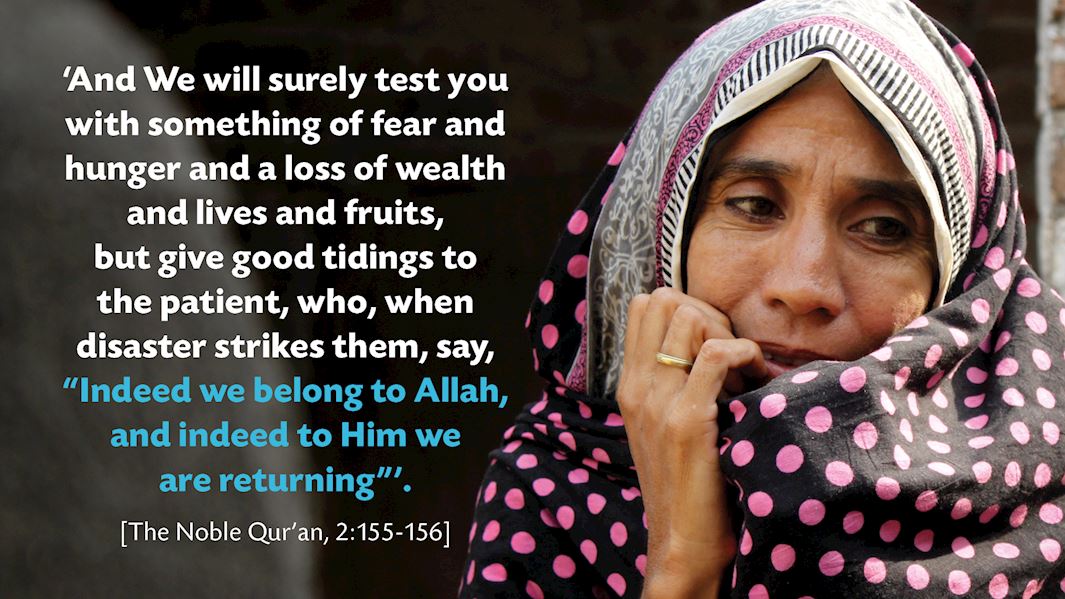
We also see this beautiful patience in the Sunnah of our beloved Prophet (saw) when he lost his infant son Ibrahim (ra):
Anas ibn Malik (ra) reported: We entered the house of Abu Saif along with the Prophet (saw) who was the husband of Ibrahim's wet-nurse, upon him be peace. The Prophet (saw) took hold of Ibrahim (ra), kissed him and smelled him. Then, we entered after that as Ibrahim (ra) was breathing his last breaths. It made the eyes of the Prophet (saw) shed tears.
Abdur Rahman ibn Awf (ra) said, "Even you, O Messenger of Allah?" The Prophet (saw) said, "O Ibn Awf, this is mercy". Then, the Prophet (saw) wept some more and he said, "Verily, the eyes shed tears and the heart is grieved, but we will not say anything except what is pleasing to our Lord. We are saddened by your departure, O Ibrahim". [Bukhari]
4. Death is a time of reflection
Death is a reminder for us all that our time in this Dunya is only temporary, allowing us to ponder about how we can invest in our hereafter. The deeds we do today will truly benefit us tomorrow.

The loss of a loved one reminds us to strive to be better believers and better people, to practise kindness and mercy, to spread love so others may remember us after we pass. When we use the death of a loved one to spark a change in our lives, they will get the reward of our good deeds too. Let's make the intention to work on ourselves spiritually, to pray our daily prayers, increase our recitation of the Qur'an, our good deeds and our charity.
The Prophet (saw) said, 'I prohibited you from visiting graves, but visit them now. Verily, they will weaken your attachment to the world and remind you of the Hereafter'. [Ibn Majah]
Visiting the graveyard is a connection to those we have lost, as it brings many of us comfort when we visit our loved ones. This is the Du'a the Prophet (saw) used to say when visiting the grave:
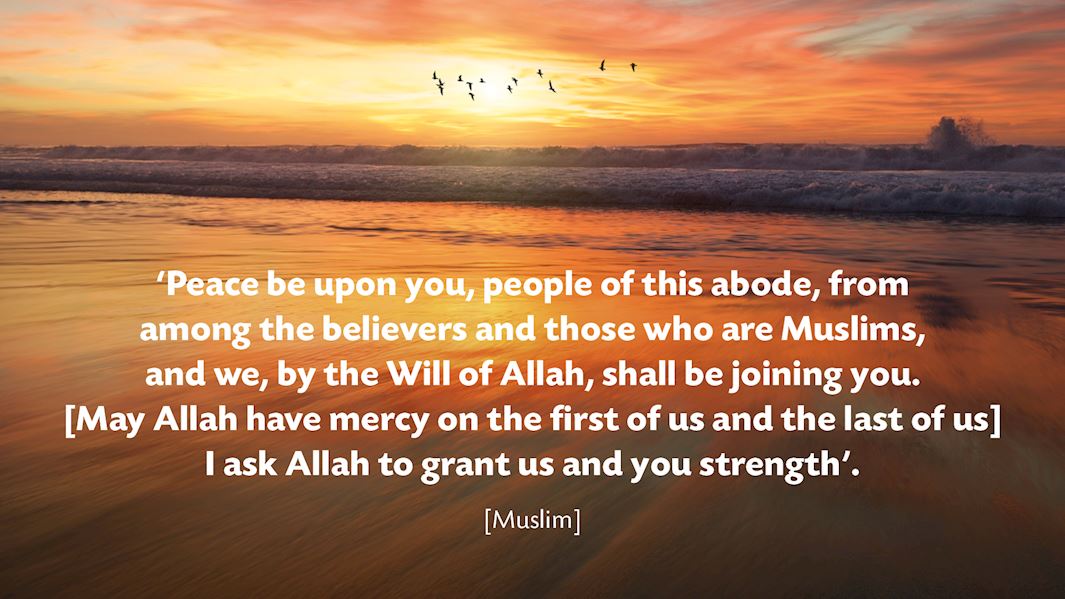
There is no exact timeline for healing, but the recipe of patience, hope and trust in Allah should bring ease to your heart. Alhamdulillah, Islam gives us the option to continue benefiting our loved ones, without decreasing our own reward. How merciful is our Lord?
Our faith reminds us that death is indeed not the end, but the beginning of our next chapter, of our inevitable return to our creator an eternal existence in the hereafter. Let us take the death of a loved one, the hearing of someone close or distant passing away as a lesson that our time soon will come too. It's up to us to plant those seeds of Paradise in this world through our actions, our speech, our character & faith.
We leave you with one final Ayah of Qur'an that will bring ease to your heart:
'And those who believed and whose descendants followed them in faith - We will join with them their descendants, and We will not deprive them of anything of their deeds'. [The Noble Qur'an, 52:21]
We pray Allah reunites us with our loved ones in His Eternal Gardens of Paradise. By the will of Allah, we shall all meet again. Ameen.
What to Say After Someone Dies Islam
Source: https://muslimhands.org.uk/latest/2021/03/four-pieces-of-advice-for-every-muslim-who-has-lost-a-loved-one
0 Response to "What to Say After Someone Dies Islam"
Post a Comment